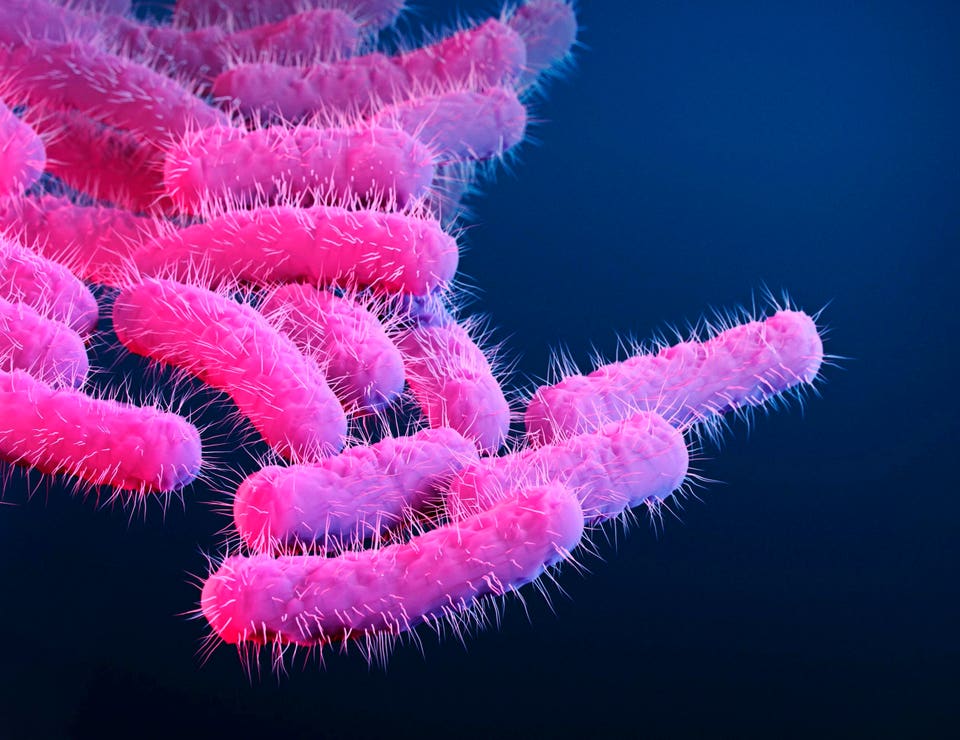Illustration of Shigella bacteria. These rod shaped of bacteria have hair-like flagella that are An extremely drug-resistant strain of gut infection shigella is on the rise in England, government officials warn. Nearly 100 cases of the strain have been detected this year, compared to just 4 in 2022, .
This is concerning, the agency says, because these infections don’t respond well to existing antibiotics. The total number of shigella cases has also risen since Covid-19 restrictions were relaxed in England in July 2021. In September 2019, 392 cases were reported in the country — increasing by 24% to 485 in September 2023.
So, what is shigella and how does it spread? Shigella is a group of bacteria that typically cause unpleasant gut symptoms. The most common species in the U. K.
(and the U. S. ) is Other species include and are rare in the U.
S. , but some forms of the latter can be deadly. Shigella bacteria are found in faeces and can spread easily via swallowing, the reports.
This can happen if you get the bacteria on your hands — by touching a contaminated surface or caring for someone who’s already infected, for example — and then touch your mouth. Eating food prepared by someone with Shigella or swallowing water that’s not properly treated can also cause infection, as can sexual contact. The cluster of drug-resistant cases in England have mostly affected gay, bisexual and other men who have sex with men.
In the U. S. , antimicrobial resistant shigella cases are also more common among men who have sex with men.
People who travel internationally or who have a weakened immune system are also at greater risk. What symptoms does shigella cause? Often mistaken for food poisoning, shigella causes stomach cramps, fever and diarrhoea, which may be bloody and last for several days. Symptoms typically last around a week, beginning a day or so after infection.
Bowel movements may still be affected for months after recovery. People with weakened immune systems may experience more serious, potentially fatal infections. How is shigella treated? Most shigella symptoms typically clear up on their own.
The CDC recommends people with infections drink plenty of fluids to make sure they don’t dehydrate. But doctors do sometimes prescribe oral antibiotics for shigella cases. Some people will experience severe illness and need to be hospitalized, where they may receive antibiotics via an intravenous drip.
This treatment “can be difficult” in cases of drug-resistant shigella, which is “concerning” for experts like UKHSA consultant medical microbiologist Dr Gauri Godbole. Some types of shigella bacteria have developed resistance to certain antibiotics, limiting the number of effective options available. This can make infections last longer, potentially drawing out symptoms and increasing the risk of transmission to others.
How can shigella be prevented? If there’s a chance you have shigella, you can reduce the chance of spreading shigella by washing your hands with soap and water after using the bathroom, by staying home if you’re sick. If possible, avoid making food for other people. Shigella can persist in stool even after diarrhea ends, so the CDC recommends avoiding vaginal, anal, and oral sex for at least two weeks — and ideally longer if possible.
Engaging in safe sex practices in general is a good way to reduce transmission of shigella. “One of the best ways to protect yourself and your partners is to practice good hygiene after sex,” said Dr Gauri Godbole. “Avoid oral sex immediately after anal sex, and change condoms between anal or oral sex and wash your hands with soap after sexual contact.
”.
From: forbes
URL: https://www.forbes.com/sites/katherinehignett/2023/12/24/what-is-shigella-drug-resistant-gut-infection-on-the-rise-england/



